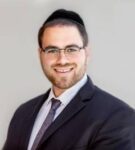By Rabbi Daniel Reich

LA JOLLA, California — Parshat Mishpatim presents a unique sequence of verses that captivates the reader’s attention. Positioned between laws outlining severe consequences for children’s aggression towards their parents, the prohibition of kidnapping emerges.
“One who strikes one’s father or mother shall be put to death.” (21:15)
“One who kidnaps another party—whether having sold or still holding the victim—shall be put to death.” (21:16)
“One who insults one’s father or mother shall be put to death.” (21:17)
The question naturally arises: why is the Torah discussing kidnapping in this particular context? Hasn’t the prohibition already been addressed in the Ten Commandments? In unraveling this mystery, Rabbi Shimon Schwab’s (1908–1995) insightful interpretation sheds light on the Torah’s intention.
Rabbi Schwab proposes a nuanced perspective, suggesting that the Torah’s reference to kidnapping in Mishpatim is not merely about physical abduction but extends to the theft of someone’s potential – a subtler yet damaging form of abduction. It’s the act of depriving individuals of their inherent capabilities and unique qualities. This perspective prompts us to explore the intricate balance between parental guidance and the imperative to allow a child’s authentic self to flourish.
Parents, Rabbi Schwab emphasizes, might inadvertently fall into the trap of molding their child into a preconceived image, stifling the child’s unique potential. The Torah here hints at the directive for parents to go beyond imposing predetermined expectations and, instead, understand the essence of their child – honing in on what makes them unique.
Embracing this approach allows parents to genuinely assist their children in developing into individuals within the framework of Torah values. Rabbi Schwab posits that the Torah strategically places the prohibition of kidnapping between laws concerning rebellious children to underscore the potential consequences of stifling a child’s potential. When a child’s innate qualities are suppressed, the parent-child relationship may naturally deteriorate, leading to strained dynamics and potential rebellion.
The Torah, through this lens, emphasizes the crucial role parents play in fostering their children’s growth along the path of Torah. Understanding one’s child becomes a fundamental aspect of effective guidance, enabling parents to leverage their child’s unique talents, abilities, and character to facilitate their journey toward realizing their fullest potential.
King Solomon’s wisdom, as expressed in Mishlei (22:6), becomes particularly relevant in this context: “Train a lad in the way he ought to go; He will not swerve from it even in old age.” While conventional interpretations link the “it” in the verse to Torah observance, Rabbi Schwab offers an alternative perspective. He suggests that the “it” refers not only to adherence to Torah values but also to the child’s unique essence.
Parents are entrusted with the responsibility to understand their children on a deeper level, fostering their true potential through this understanding within the framework of the Torah. This encompasses a holistic understanding and nurturing of the children’s core identities, ensuring their steadfastness in the path of Torah throughout their life.
The nuanced understanding of Rabbi Schwab enriches the Torah’s teachings, emphasizing the importance of avoiding the metaphorical “kidnapping” of a child’s potential. Such an approach ensures that children are guided authentically, allowing them to flourish within the richness of Torah values.
The Torah, with its profound insight, urges parents to go beyond societal expectations and nurture the distinctive qualities that make each child unique. The Torah strategically places the prohibition of kidnapping within the context of laws regarding rebellious children, underscoring the potential consequences of stifling a child’s uniqueness. Rabbi Schwab’s insights add depth to the Torah’s teachings, urging parents to embrace each child’s individuality and help them follow the Torah in their own way, making their Torah life beautiful and meaningful.
*
Rabbi Reich is spiritual leader of Congregation Adat Yeshurun in La Jolla.